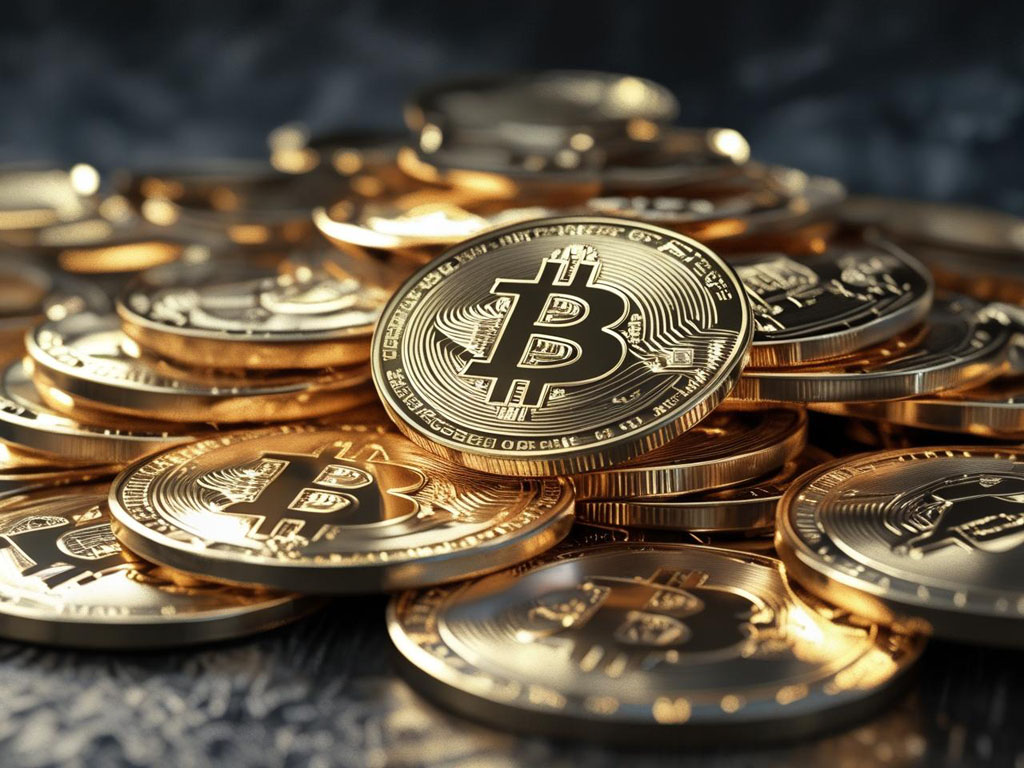If you are even slightly interested in cryptocurrency, you have probably heard such words as coin, token, blockchain coin, and many other terms that sometimes get confused with each other. In this article, we will take a detailed look at what coins and tokens are, what their differences are, how the most popular blockchain coins work, and why it is important to know. So sit back comfortably, because ahead is a big and very interesting overview!
- What Is a Coin: Explained in Simple Words?
- What Is a Token and Why It Differs from a Coin?
- Coins and Tokens: What Is the Real Difference?
- Why Coins Are Needed and Their Role in the Crypto World?
- Blockchain Tokens in the Ethereum Network: How It Works
- How to Buy Tokens and Convert Them into Money?
- Promising Tokens 2025: What to Expect
- Frequently Asked Questions about Coins and Tokens
- Conclusion
What Is a Coin: Explained in Simple Words?
Let’s start with the basics. The word coin (from English coin) in the context of cryptocurrencies means a blockchain coin. Coins are digital currencies that are created in their own blockchain networks and serve as the primary medium of exchange within those networks. They have their own independent blockchain infrastructure.
For example, the most well-known and popular blockchain coins are Bitcoin (BTC), Ethereum (ETH), Solana (SOL), Binance Coin (BNB). Each of them exists in its own network and has clear functions, issuance rules, and protection mechanisms.
To understand what coins are, imagine them as digital money that you can use to pay for goods, services, or store for further investment. Coins are not just units of value; they are the foundation of their blockchain ecosystem — without them, the network cannot exist.
Main Characteristics of Coins
- Own blockchain. A coin operates in its own network, for example, Bitcoin in the Bitcoin network, Ethereum in the Ethereum network.
- Role of currency. Coins are often used as the main medium of exchange in the network and as a store of value.
- Security. Being part of a blockchain, coins are protected by cryptographic methods.
- Scarcity. Just like traditional currencies or precious metals, the number of coins is limited.
What Is a Token and Why It Differs from a Coin?
Now let’s talk about tokens. If a coin is the native currency of a blockchain network, then a token (from English token) is a digital asset that is built on top of someone else’s blockchain platform, but the native coin of that network is separate. In other words, a token exists in the network of another blockchain. For example, many popular tokens operate on the Ethereum network.
The question “what is a token in cryptocurrency?” most often arises among those who begin to explore DeFi, NFTs, or other areas of the crypto industry. Tokens can serve different functions: act as shares, voting rights, digital certificates, and even equivalents of goods or services.
Types of Tokens by Function
| Token Type | What Tokens Provide | Example |
|---|---|---|
| Utility tokens | Provide access to services or products on the platform | Chainlink (LINK), Basic Attention Token (BAT) |
| Security tokens | Represent ownership, dividends, or shares | tZERO, Polymath |
| Governance tokens | Grant voting rights in projects and governance | Uniswap (UNI), Compound (COMP) |
| Non-fungible tokens (NFTs) | Unique digital items, non-interchangeable | CryptoKitties, Bored Ape Yacht Club |
It is important to remember that a token does not have its own blockchain network, but functions thanks to the platform that supports it (most often, this is Ethereum).
Coins and Tokens: What Is the Real Difference?
So, coins and tokens – what is the difference and meaning? Here are the key points:
- Infrastructure. Coins are the native currency of their own blockchain, while tokens are digital assets within another platform’s network.
- Functions. Coins mainly act as currency, while tokens can be anything — shares, voting rights, digital cards, etc.
- Technology. Tokens depend on the blockchain platform where they were created. For example, tokens in the Ethereum network are built under standards ERC-20, ERC-721.
- Application. Coins are necessary for running the blockchain, paying fees, incentivizing network participants, while tokens can serve much broader purposes.
Comparative Table – Coins vs. Tokens
| Criterion | Coin | Token |
|---|---|---|
| Own network | Yes (Bitcoin, Ethereum, Solana) | No (built on Ethereum, Binance Smart Chain, etc.) |
| Primary purpose | Currency, primary means of payment | Asset, right, access to services |
| Examples | Bitcoin (BTC), Ethereum (ETH), Binance Coin (BNB), Solana (SOL) | Uniswap (UNI), Chainlink (LINK), NFTs |
| Functions | Transaction payments, store of value | Voting, access to products, investments |
Why Coins Are Needed and Their Role in the Crypto World?
You already understand that coins are the “real” blockchain money, essentially digital cash. But why are they needed? First of all, coins perform several basic functions:
- Transaction fees – in almost all networks, for example, Ethereum, you need to pay a commission in coins (ETH) to execute a transaction.
- Store of value – like Bitcoin (BTC), which is digital gold, considered by many as an asset for long-term capital preservation.
- Network security – in blockchains with Proof of Stake, users stake coins to support the network.
- Governance tool – some coins grant voting rights for important protocol updates.
Thus, coins are the foundation on which any blockchain ecosystem stands.
Blockchain Tokens in the Ethereum Network: How It Works
Ethereum is not just a coin (ETH), but a whole platform for creating smart contracts and tokens. The Ethereum network has token standards that define how they are created, transferred, and used.
The most popular standard is ERC-20, used for many utility and governance tokens. Another important standard is ERC-721 and ERC-1155, which are used for NFTs.
Thanks to these standards, tokens can exist within a single network and interact with different decentralized applications (dApps), making Ethereum the leader in the decentralized finance (DeFi) space.
Key Advantages of Ethereum Tokens
- Easy creation and issuance without building your own network.
- Integration with a wide range of services and exchanges.
- Ability to implement complex logic through smart contracts.
- Support for different types of tokens — from payment to NFTs.
How to Buy Tokens and Convert Them into Money?
In today’s crypto world, buying tokens is quite simple if you know a few basic rules.
How to buy tokens?
- Choose a cryptocurrency exchange or decentralized exchange (DEX) that supports the desired token.
- Register on the exchange or create a cryptocurrency wallet with Ethereum support (such as MetaMask).
- Transfer the required amount in ETH or another cryptocurrency needed for exchange.
- Swap ETH for the token via the exchange or smart contract.
How to convert tokens into money?
- Sell tokens on a cryptocurrency exchange that supports them.
- Receive the equivalent cryptocurrency (e.g., BTC or ETH).
- Exchange cryptocurrency for fiat money via exchange, P2P services, or crypto ATM.
It is important to remember about Ethereum network fees, which can be high at peak times. So choose the right moment for transactions.
Promising Tokens 2025: What to Expect
The world of cryptocurrencies never stands still, and trends often change. Promising tokens in 2025 include projects related to decentralized finance, metaverses, as well as artificial intelligence tokens.
Particularly popular are AI tokens 2025, which provide access to AI services, data, and models. In particular, projects related to ChatGPT tokens are emerging — special tokens for working with artificial intelligence systems, granting access to additional functionality.
Investors often look toward such tokens, as AI is one of the main technological progress themes of the coming years, and crypto economics can play a huge role here.
Frequently Asked Questions about Coins and Tokens
Are coins and tokens the same thing?
No, coins have their own blockchain, tokens operate on another’s blockchain.
Can tokens become coins?
Yes, some projects eventually launch their own blockchain and convert tokens into coins.
How to know if a token is promising?
Study the project, its team, technology, and market.
What is better for investment – coin or token?
Both options have advantages; it depends on your strategy and risk tolerance.
Conclusion
The world of cryptocurrency impresses with its complexity and diversity, but understanding the basic concepts — coins and tokens — makes it more accessible. Coins are real digital money with their own network, while tokens are assets that exist on top of these networks and perform a wide variety of functions. By understanding the difference between coins and tokens, you can better navigate the crypto world, choose promising projects, buy assets, and convert them into money in time. It is especially interesting to follow the development of artificial intelligence tokens and other 2025 trends, as they hold the future not only of cryptocurrencies but also of technology as a whole.


